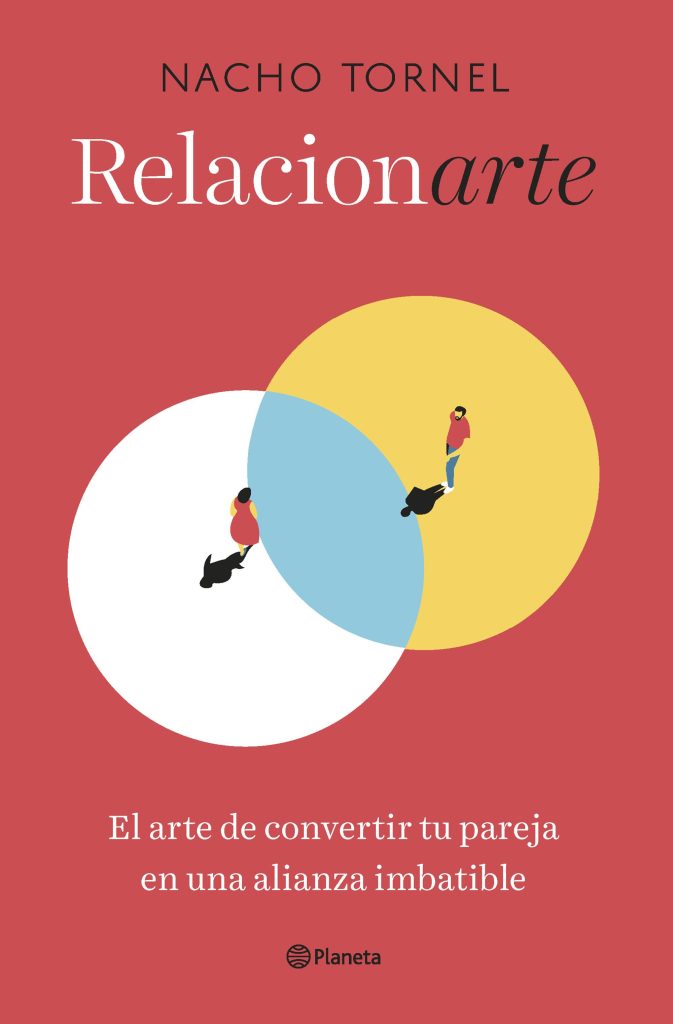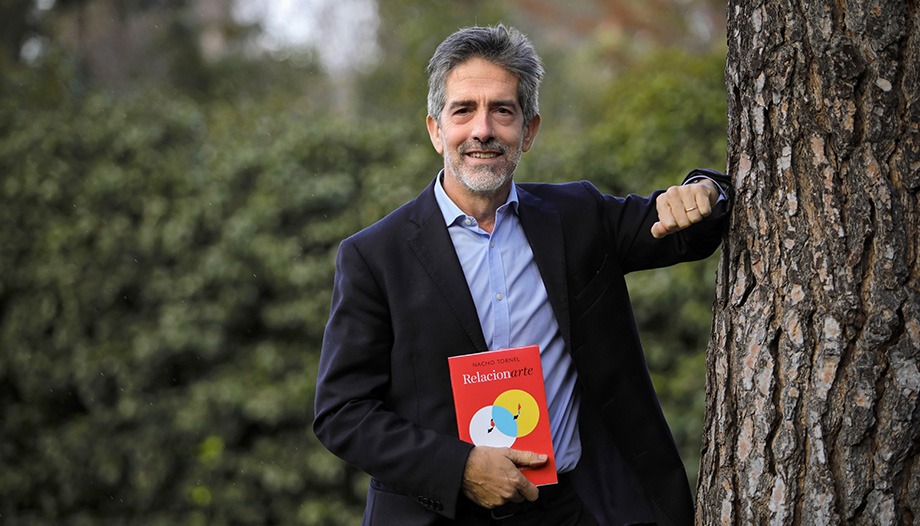Family mediator and expert in conflict resolution in couples, Nacho Tornel has been helping couples in crisis who are looking for a solution to their problems for more than 15 years.
An experience that is reflected in his books. EnparejArtepublished in 2016 and, recently RelacionArteboth published by Planeta. In the latter, Tornel addresses different crises, complex situations and points of friction in which most marriages and couples can be seen, in some way reflected.
Tornel, who combines her work as a therapist with university teaching, emphasizes in this conversation with Omnes that, although it is not certain that there are more obstacles to marriage today than in the past, our "highly individualistic society keeps whispering to us that we should listen to ourselves" without thinking of the other.
One of the topics addressed in the book is forgiveness between couples. Is forgiveness also built in small things or is it something "for extreme cases"?
-Indeed, the sorry It can be the decision of a person who chooses to accept the deep expression of repentance of another in order to put aside a grievance and continue their relationship. But it can also be, in the ordinary, an inner disposition that leads us to save the intention of the other and not to judge and condemn him internally for every alleged fault he commits.
How to manage this dual reality between being forgiven and forgiving?
-A good formula is to look inward frequently and become aware of the many flaws and imperfections we each have that affect the way we relate to others. Being aware of that will make us much more forgiving of those situations in which we feel let down by the other.
Is it a good idea to manage married life as a list of "things each is entitled to do"?
-It makes no sense to live marriage as a "do ut des" as the Latins say; that is, living in a "I give you this and you give me that".
We come to marriage to make happy the person we love most in the world and whom we have chosen above all others. Therefore, the formula is to seek the happiness of the other in the details of everyday life: listening to him/her, attending to him/her, serving him/her with generosity. That lived in reciprocity is the basis of marital happiness.
Screens are an intimacy stealer in marriage and in the family.
Nacho Tornel. Family mediator and author of "RelacionArte".
Social networks have opened the door to all kinds of intimacies. Doesn't this overexposure affect the conception of marriage?
-The social networks are a window display and no one puts a broken toy in a toy store window. We present what is "more presentable". On that basis, we should all be very cautious in the use of social networks and screens in general, because they are a robbery of intimacy in marriage and in the family.
Both he and she should know how to leave the cell phone or tablet in a specific place: call it drawer or shelf, to be able to live together looking at each other's faces and talking to each other's eyes without letting inopportune messages distract us from what is really important, which is the happiness we are looking for in our home.
Of parents and children
Is it possible to establish the limit before marriage when, for example, situations such as the arrival of children have not yet occurred?
-It is fundamental that, in the couple, both he and she understand that, from the moment they get married and form a home, they are already a family. Their nuclear family. Therefore, they must totally prioritize the other in the decision making and in the day to day functioning, leaving behind the family of origin, which they will treat with affection, but having very much in mind that the first thing is him and her. For each other.
In more practical terms, I recommend young couples not to mortgage their relationship with their family of origin from the beginning by establishing that "on Saturday we will eat at my parents' house and on Sunday at your parents' house", "that we will spend the vacations like this...", etc. I repeat, that young couple is already a family and should have the freedom and spontaneity to function as they want and decide.
What can you do when you don't have the confidence to say certain things to your parents?
-I have encountered this situation at times. That "I have never said anything like that to my father", maybe in the sense of putting him a little "in his place".
Well, the marriage and the formation of a family is a good place to mature and grow and, therefore, the time will have come, when necessary, to speak clearly with your parents to make them understand that you are already a family and you make your own decisions; or that those comments he/she has made towards your husband or wife are totally inappropriate and you cannot tolerate them, etc.
The parents, who will be of an age, are not going to change their way of thinking, surely, but they can and should learn to respect the young couple and let them make their own decisions.
Is it possible to have these conversations without ending up in an external or internal "pitched battle"?
-When it comes to the other person's family, surely you are not wrong if you keep quiet, I mean that you should not give your opinion on what they do or say because it is none of your business, just as you would not tolerate their opinion and intervene in what you say or do.
Besides, let's not forget, my spouse's family are the people that my spouse carries in his or her heart and therefore, out of love for him or her, I will do everything possible so that I can maintain a good relationship with them. It is up to me to add, not subtract or divide.

Let's test the "typical clichés": Do marriages have more problems than before?
-I don't know because I haven't lived before; but, certainly, that today we face a highly individualistic society that keeps whispering or shouting at us that we should listen to ourselves and seek our personal well-being and those messages are the antidote to marital happiness because they seek to make us focus on ourselves and our own well-being.
In addition to the high level of materialism and consumerism that makes us more and more hedonistic, today the irruption of social networks that, as we have said before, steal intimacy and real connection between people, etc.
Do couples now have "less stamina"?
-We live accustomed to the instant gratification provided by our very rich consumer society in this Western Europe and this makes us much less predisposed to personal sacrifice.
Are they more sentimental or more rational?
-The emotivism in which we move also does a lot of damage because we are deceived into believing that only what flows as emotion and feeling is valid and that it is not worth doing our part, to make an effort to work on a relationship when things do not flow just like that. This is a complete attack on the waterline of the marital relationship that is meant to last for years; to go through peaks and valleys, as is logical throughout life.
True love is demonstrated, precisely, when one is able to push even if it is uphill.







